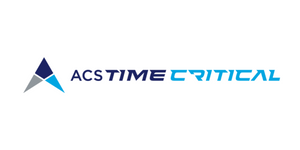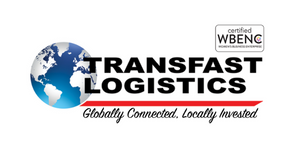2022 Conference Programme
11:15 - 12:00 EDT
Session 3: The global automotive outlook – market drivers and disruptions
Joe McCabe, President & CEO at AutoForecast Solutions
A blistering pace of transformation combined with continuous supply chain disruption means that the automotive sector is stepping away from traditional production plans and reliable historical sales cycles into the great unknown. Improving logistics and supply chain planning and strategy development is paramount to success. Join this session for crucial insight and analysis on the key trends shaping the market, as well as the future opportunities and challenges that await carmakers, suppliers and logistics service providers.
- Detailed short, medium and long-term global production and sales volume outlook
- Impacts and analysis of critical material supply shortages
- The transition to electric vehicles – powertrain mix volumes, sector growth projections, new players entering the game, and traditional carmaker strategies and targets
- The growth of the North American battery manufacturing landscape – new players and supply chains, key partnerships, and whether regional supply will ever catch up with demand.
12:00 - 12:45 EDT
Session 4: Shock to the system – scaling up electric and battery supply chains
Chris Styles, Vice-President Supply Chain Management at Nissan North America
Darren Epps, Senior Director Advanced Vehicle Technology at Ryder
Stephanie Dix, Vice President, Operations and Global Logistics at Cirba Solutions
As EV sales and production rise, capacity demand for lithium-ion battery cells is rising exponentially. New players and industries are becoming involved in the automotive value chain. Logistics and supply chain operations and stakeholders are having to adapt and expand at pace. In this panel discussion, learn from experts helping to design and scale battery and EV supply chains, and discover the key impacts and considerations for start-ups and established networks and operations:
- Sourcing strategies and key partnerships
- Material handling training and packaging requirements
- Transport regulations, finished vehicle weights and dimensions, and infrastructure constraints and investment requirements
- End of life opportunities and the circular supply chain opportunities
Track: Networks of the future, achieving net-zero, end-to-end supply chain vision
12:00 - 12:45 EDT
Breakout room: Ideas Labs In-person only
Increasing supply chain resiliency: Implementing tactical solutions at speed with IAC
Patrick Bauer, Vice President, Supply Chain at IAC Group
Whilst end-to-end control of the supply chain remains a strategic objective, the ability to quickly develop and deploy practical tools to enhance visibility and track performance for plants and leadership teams has become crucial in today’s volatile global trade network. In this interactive breakout group, led by automotive tier-1 supplier IAC Group, supply chain practitioners and experts will share ideas and examples of tactical solutions that improve transparency and optimise processes across supplier management, transportation, inventory, data management, cost control and more.
14:00 - 15:00 EDT
Session 5: Maximising potential – women and diversity in the automotive supply chain
Kelly Bysouth, Chief Supply Chain Officer at IAC Group
Kathy Crawley, General Manager, Transportation at Amazon
Mauryo Jones, VP Safety Health & Security at Ryder
Jennifer Sarah Bolton, Director, Supply Chain Management at Nissan North America
As complexity throughout the supply chain grows, job roles and skills requirements are evolving, and the automotive sector faces sharp competition to attract and retain the top talent. Developing an inclusive and diverse workforce has become a crucial factor in driving supply chain performance, fostering creative and productive working environments and addressing labour shortages across the value chain, from truck drivers to the boardroom. Join this session to hear from inspirational, forward-thinking leaders and understand how and why automotive organisations must diversify their talent and support women in the supply chain.
Track: Developing logistics talent
14:00 - 15:00 EDT
Breakout room: Ideas Labs In-person only
Logistics Processes
Adrian Jennings, Chief Product Officer at Cognosos
Logistics Processes: There are only five ways for manual logistics processes to go awry. Change my mind.
The manufacturing and distribution of automobiles is one of the most highly complex orchestrations of manual process and workflow on the planet. What’s more is that one tiny misstep can wreak havoc on every subsequent activity sending shockwaves up and down the supply chain. The good news is that there are *ONLY* five ways that these manual processes can become crippled. Join this Ideas Lab as we bring together constituents from different parts of the supply chain and outline the various challenges that are faced across functional areas. In this session we will discern the five root causes of issues with process, debate the unlikely possibility of a sixth, and discuss the common, integrated solutions that can solve for costly mistakes and minimize supply chain upset.
Adrian Jennings, Chief Product Officer at Cognosos
15:00 - 15:45 EDT
Networking, meetings and on-demand catch up
Hydration sponsor Air Charter Service

Coffee Sponsor

15:45 - 16:45 EDT
Session 6: Setting new standards for sustainable packaging
Jeremy Galanty, Sustainability Analyst at General Motors
Bridget Grewal, Director Packaging Continuous Improvement at Magna International
Kacie Freeberg, Senior Director of Industrial VST at ORBIS Corporation
Packaging has a vital role to play in the road to net zero both in improving shipping efficiency and in reducing its material and emission impact. As carmakers and tier suppliers prioritise renewable and recyclable material and the decarbonisation of the supply chain, logistics leaders are increasingly focusing on the implementation of greener packaging strategies and processes to reduce carbon footprints and develop circular economy strategies to achieve enterprise sustainability goals.
Join this session to understand how packaging materials and solutions are evolving to meet the requirements of modern supply chains, including through new standards established by the Suppliers Partnership for the Environment (SP) and adapted by leading OEMs and tier-1 suppliers. SP members including Magna International, together with packaging experts, will discuss how packaging is collaborating to create standards that allow flexibility for individual organisations to implement sustainable packaging strategies tailored to their business models, operations, and partnerships, and address the barriers to implementing recycling practices.
Breakout room: Ideas Labs In-person only
Finished vehicle logistics – scaling capacity, fast!
Charles Franklin, Sr. National Manager, Business Development at Glovis America Inc
Data-driven supply chain risk management with Ford
Oleg Gusikhin, Advanced Connectivity Analytics & Operations Research Manager & Technical Leader at Ford
Vijaya Neela, President & CEO at aThingz
Data-driven supply chain risk management with Ford
This workshop, led by Ford Motor Company’s Data and Analytics team, will bring together industry experts and leaders to discuss and debate how to design risk assessment models for today’s volatile supply chain landscape. Analytics experts will explore how automotive logistics teams can maximise data across the supply chain, from software development and implementation to data exchange best practices, from supply base mapping to predictive analytics of material shortages.
Finished vehicle logistics – scaling capacity, fast!
Outbound capacity is already at critical levels, with further pressure predicted when material supply starts to level out and carmakers ramp up production to keep pace with consumer demand. Join this roundtable to connect with peers and discuss the best solutions to overcome driver shortages, and scale up capacity to keep the metal moving.
16:45 - 17:30 EDT
Session 7: Keeping the flow – Ensuring supply chain continuity in the era of disruption
Paul Biegen, Director of Global Transportation, Customs and Packaging at Joyson Safety Systems
Ryan Etherton, Senior Manager Transportation & Logistics at American Axle Manufacturing
Julia Pongracz, Vice President Sales, Head of Automotive Vertical North America at Kuehne + Nagel
Scott Morson, Commercial Director at Royal International
Many of the automotive industry’s challenges over the past two years have depended on innovative logistics management to mitigate and prevent disruption, from material shortages and shipping congestion, to navigating lockdowns and driver shortages. Flexibility in network management and multimodal logistics strategies have become more critical, while manufacturers continue to seek better visibility in supply and freight. And more than ever, working with the right logistics partners has become a competitive advantage.
Join this session to understand how supply chain and logistics leaders are:
- Managing multimodal logistics strategies and using new trade lanes to ensure timely deliveries
- Coordinating inventory allocation across regional and global manufacturing sites to avoid line stoppages
- Working more strategically with suppliers and service providers to secure transport capacity and reliable material flows
Track: Digitalising logistics, end-to-end supply chain vision, navigating the new ‘never normal’
18:00 - 21:00 EDT
Automotive Logistics and Supply Chain Global gala reception, powered by Ryder at The Whiskey Factory
Continue the conversation and discuss the day’s highlights, whilst experiencing an unforgettable evening at The Whiskey Factory in Downtown Detroit. Set within a historic working spirits factory, the gala reception provides the perfect forum to reconnect with colleagues and make fresh connections, whilst enjoying a delicious dinner and world-class cocktails. Transport to and from the MGM Grand will be provided. Dress code - Business casual.

08:30 - 09:00 EDT
Conference open for registration, networking and refreshments
Grab your badge and a bite to eat, and then start making new connections and catching up with colleagues and friends.
09:00 - 09:50 EDT
Session 8: Investing wisely – prioritising digital opportunities
Raman Mehta, Senior Vice President & Chief Technology Officer at Johnson Electric
Ananth Ranganathan, Senior Manager, Supply Chain Strategy & Digitalisation at Nissan North America
Wiebe Helder, Chief Executive Officer at Cargobase
John Perkovich, Chief Operating Officer at RPM
Executives at automotive manufacturers are ready and anxious to improve supply chain visibility and optimise logistics flows, and there is no shortage of technology available to digitalise and speed up processes. However, systems integration can require significant cost, time and coordination to implement. Supply chain and logistics leaders must prioritise their critical challenges and ambitions when they plan digital investments – as well as being agile in making use of new opportunities. What frameworks can logistics executives follow?
Join this session for insight on IT and digital investment priorities, including:
- What problem needs to be solved? Identifying the right technology to meet your logistics needs
- Where is the low-hanging fruit in digitalising automotive logistics, versus the key steps to investing in a truly smart and connected supply chain?
- Strategies for working with agile technology partners
- What is the best return-on-investment scale to consider?
Track: Digitalising logistics, end-to-end supply chain vision
09:50 - 10:05 EDT
Bonus: Logistics start-up pitches
Hear from new logistics disruptors and innovators. A select group of start-ups will pitch their business plans in a 4-slide/4-questions format that gives attendees the chance to discover the next automotive logistics unicorn…
10:05 - 10:30 EDT
Networking, meetings and exhibition
Hydration sponsor Air Charter Service

Coffee Sponsor

10:30 - 11:15 EDT
Session 9: Supply chain and logistics design – collaborating from the start
Steve Brown, Vice President, Parts Supply Chain at Toyota North America
Maxim Serov, Director, Supply Chain Management NAO at Benteler Automotive
Richard DeBoer, Executive Vice President, Supply Chain Logistics at Carter Logistics
Ken Mortson, General Manager, Supply Chain Services at Agillence
With supply chain costs rising and logistics flows carrying more risk, manufacturers need to ensure that sourcing, production and network decisions are carefully made, including as EV and battery output ramps up. That is why more OEMs and suppliers are focusing on strategic supply chain design from the development stage of vehicles and products. In doing so, they are working with new internal and external partners more closely. What are the most important opportunities and how can supply-chain design improve?
This session will focus on key areas of early and strategic supply-chain design, including:
- Having a plan for every part, including collaboration with engineering
- Planning for sustainable energy sources and supplier locations
- Design-for-manufacturing and design-for-cost strategies
- Optimising network and distribution centre locations from early on
Track: End-to-end supply chain vision
11:15 - 12:00 EDT
Session 10: It’s a small world – mitigating risk across global supply chains
Christopher Mattingly, Vice President Transportation at Stellantis - North America
Greg Toornman, Vice President, Global Materials, Logistics, and Demand Planning at AGCO Corporation
Greg Megerian, Director of Logistics at Adient
Michael Andersen, Vice President, Automotive/Industrial Vertical, North America at Maersk
Global supply chains have become increasingly volatile and susceptible to disruption and change, with multiple crises often occurring simultaneously. Dealing with hazardous weather, unpredictable and spiking rates, interrupted production, shorter order cycles, material shortages and distressed suppliers, is now all in a day’s work for supply chain executives and their teams.
Join this session to understand how global supply chain and logistics leaders are developing and implementing new strategies to:
- Mitigate the rising cost of logistics
- Balance lean processes with increased inventory levels
- Reroute international transport flows ahead of time to avoid future bottlenecks
- Navigate the journey from global to regional supply
- Design, implement and track greener global networks
Track: Achieving net zero, end-to-end supply chain vision, digitalising logistics, navigating the new ‘never normal’
12:00 - 13:30 EDT
Lunch, networking and exhibitions
Lunch Sponsor time:matters

13:30 - 14:15 EDT
Session 11: You're Hired! Securing top talent in logistics and supply chain
Matt Pohlman, CEO, Automotive Industry Action Group (AIAG)
Amy Broglin-Peterson, Adjunct Faculty, Department of Supply Chain Management, Michigan State University
Retaining and securing top talent across logistics operations and supply chain management is crucial for the continued recovery and success of the automotive sector. The ‘Great Resignation’ has impacted companies globally, and automotive companies compete across sectors for new workers. Attracting and retaining logistics employees, including internally, is more challenging than ever, considering the extreme pressures and demands on today’s supply chains, as well as fast changing technology. However, the heightened recognition of supply chain disciplines, along with more focus on digitalisation and sustainability, is a huge opportunity for companies to develop talent, too.
Join this session to hear how industry leaders are motivating and upskilling their teams and attracting and developing the next generation of logistics and supply chain talent.
Track: Developing Logistics Talent
14:15 - 15:00 EDT
Session 12: Never waste a good crisis – opportunities to improve supply chain resiliency
David Leich, Executive Director, Global Supply Chain at General Motors
Thorsten Meincke, Board Member for Air and Ocean Freight at DB Schenker
Mike Valentine SVP, Solutions Engineering & Innovation at Syncreon
So far, the 2020’s have laid bare a number of unknown and rarely considered fragilities across the supply chain. At the same time, that has provided the opportunity to rethink well-established best practices and business models. In this final session, our panel of top supply chain executives from the automotive sector and other industries share how they have turned crisis into opportunity. They will discuss how they have bolstered their operations and evolved their strategies to build robust, data-driven and sustainable networks with stronger partnerships at the core.
Track: Achieving net zero, end-to-end supply chain vision, digitalising logistics, navigating the new ‘never normal’, networks of the future, developing logistics talent